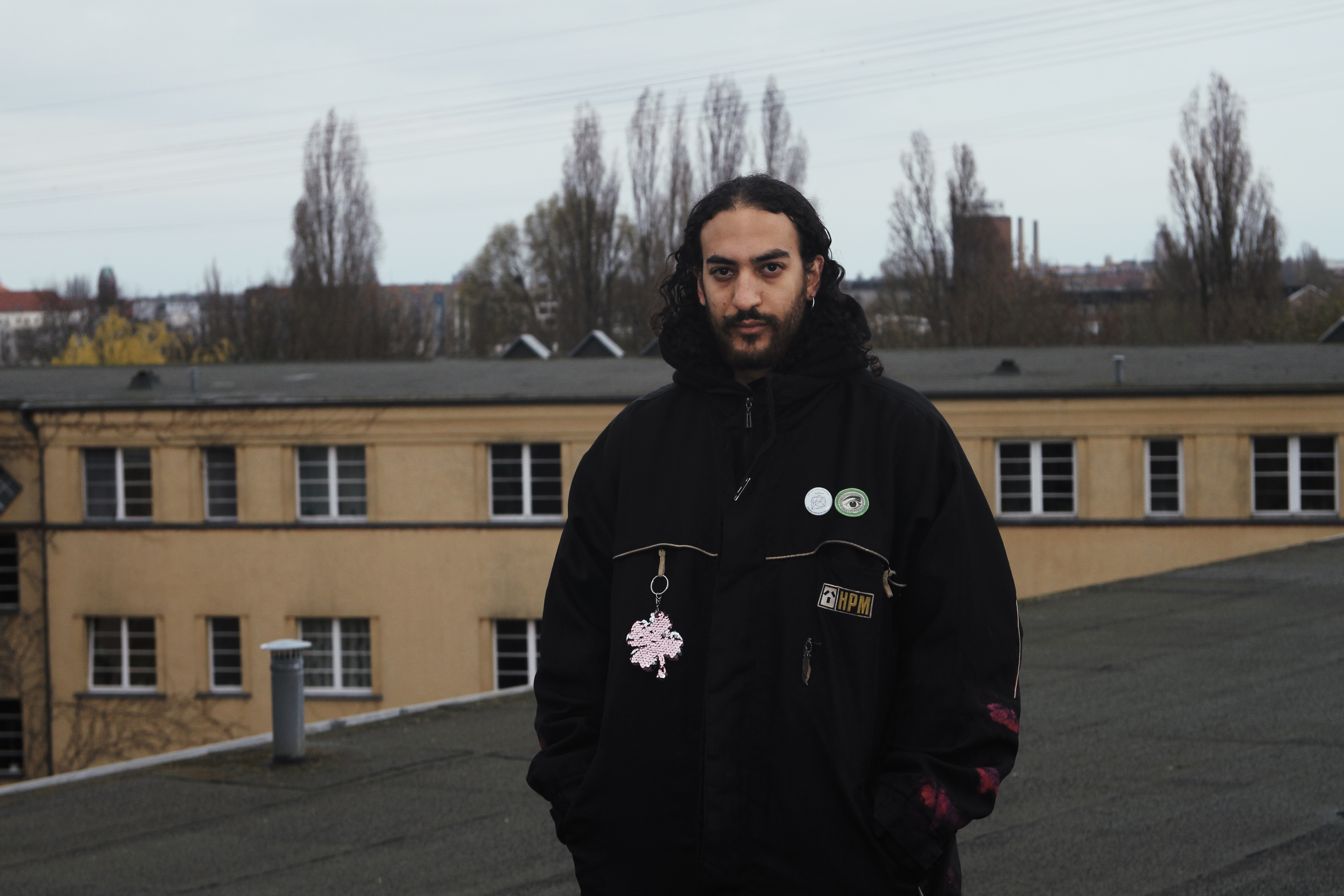
Born and raised in Egypt’s crowded and chaotic capital Cairo, Assyouti is among his generation’s most distinctive DJs and producers. Juggling hypermodern bass mutations, warped dancefloor snaps and percussive club experiments, he draws energy from the tumultuous environment in which he grew up, channelling it into refined productions and elegant selections.
Can you tell us about your background? What led you to active musicianship and DJing?
It started with me DJing in my room during high school, either for friends or just for myself, then at some local house parties. That led to recording mixes and uploading them to SoundCloud, which eventually turned into doing podcasts for platforms I was following at the time, and from there, playing gigs in Cairo. It was a hobby at first, something I did in my spare time. Things shifted when I moved to Paris to study fine art. I went in thinking I’d focus on that, but within a couple of months, I realised that music was what I wanted to dedicate myself to. That’s when it became more serious.
The sounds you play and produce are broken and twisted—in a good way—with plenty of bass, but also eerie synth pathways. Can you talk about your “sound”—the sounds you gravitate to in terms of production and DJing—and whether there is a difference for you between what you play and what you produce, in terms of sonic aesthetics.
I don’t really have a plan when I start producing. It’s more about experimenting with sounds and rhythms until an idea takes shape in my head. It’s a lot of trial and error. That makes it hard to define what I gravitate towards because it’s not premeditated—it’s more of a feeling than a thought-out process. When it comes to DJing, it’s a different context. My sets don’t always match my productions, but I like to keep both unpredictable. In my DJ sets, I like to go through many twists and turns, making them feel disorienting yet coherent at the same time. This sometimes bleeds into my productions as well.
When you produce, do you have the dancefloor in mind, too? Or is it more abstract and creative in terms of artistic expression?
I don’t really have the dancefloor in mind, but I do have the club in mind. I tend to make music that isn’t easy to dance to, which is the kind of music I most enjoy hearing in a club. The tracks that get me going the most are the ones that I don’t really know how to move to—even if they’re highly rhythmic. The ones that bring you to the point where you’re so mentally engaged with the sounds that you’re completely focused on them and you’re not really dancing. It’s more of a mental and emotional conversation than a physical one. I think that’s the kind of conversation I’m trying to create with my music… That’s one side of me—the other side just wants everyone to lose their shit and jump around too.
What are your inspirations—they don’t have to be purely musical?
Lately, I’ve found a lot of inspiration in films. My debut album is actually centred around film sampling. One day, while watching a Kurosawa film, I realised that a lot of the films I spend my time watching have really interesting sounds that could be used in music, so I started recording bits that caught my ear while I watched. I built a track around these samples after processing them, and it felt like the samples shaped the music in a new way, adding an entirely new layer. It turned out quite different from my other music—more captivating. It became less about me as the sole creator and more like a collaboration between the film’s audio and my own work. That’s the approach I took for the entire album; it’s almost finished now.
How do you feel about the state of world of music and culture at the moment?
There’s definitely a sense of repetition right now. I feel like a lot of producers are starting to sound the same, chasing trends, and it’s affecting the scene. Labels push certain sounds, and that influences what gets booked, so the same trends dominate. The audience ends up getting stuck in this cycle, and there’s less room for variety. But I also see people getting tired of it, and I think more artists and listeners are pushing back, looking for something more genuine. I’ve had a lot of conversations recently with others who feel the same way. I hope that means we’ll see a shift soon.
What does the near future have in store for you?
I’m wrapping up my album and getting ready to bring it to life with an AV project, which I’m super excited about. Plus, I’m diving into a new collaborative project that’s been in the works. It’s still early days, but it’s definitely something I’m looking forward to sharing.
Interview by Lucia Udvardyova
Photo Mariam Mekiwi